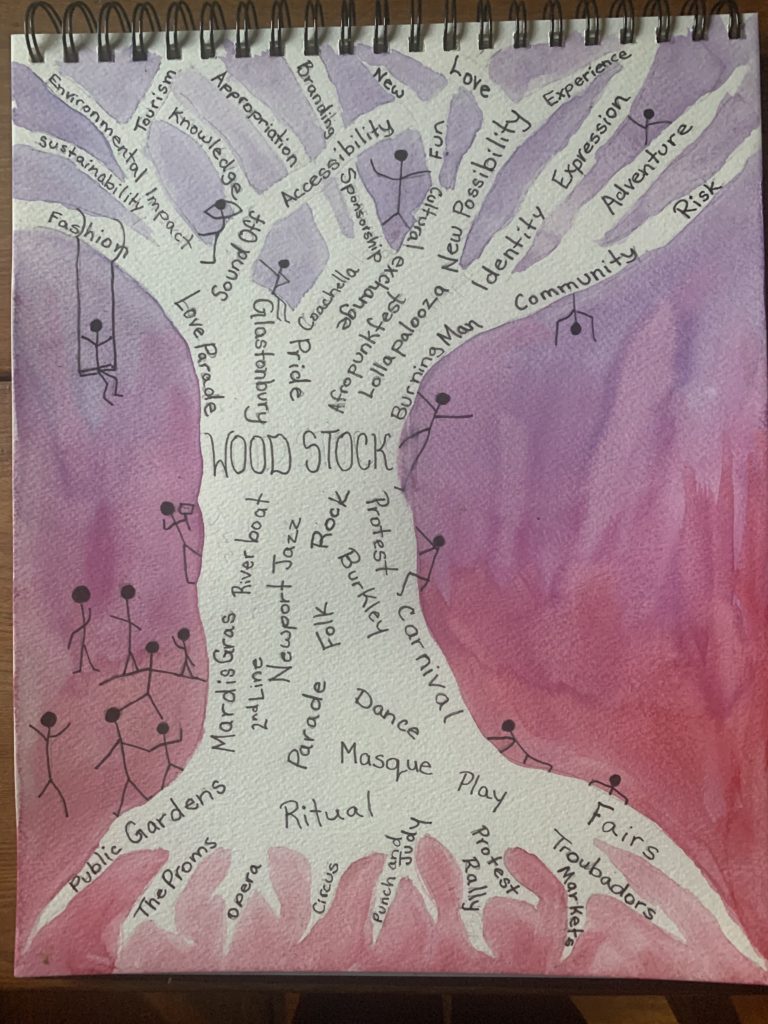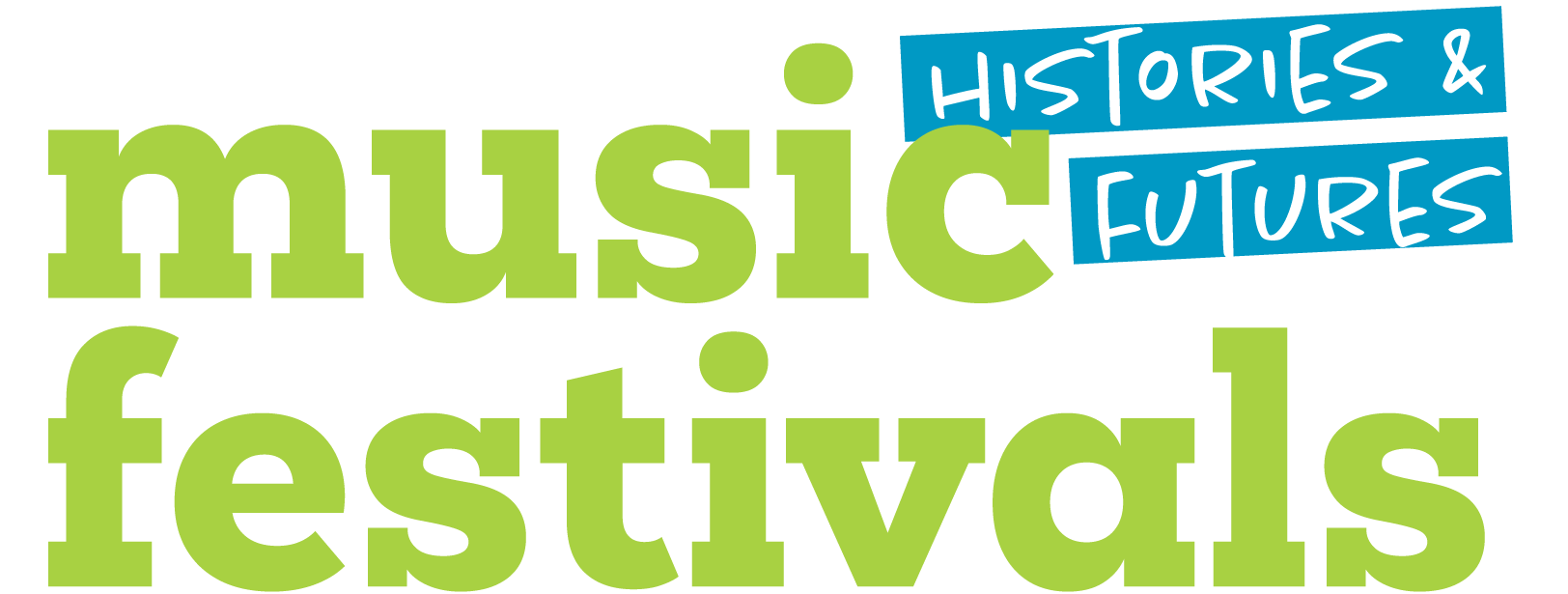Inspired by “The Tree of Jazz” by Mary Lou Williams this illustration is an organization of thoughts and responses to the second installment of “Curating for Change: The Work That Music Festivals Do in the World.” Thinking through the histories that inspire festivals as a means of understanding what festivals do now is useful in tracing both the positive and negative effects of such gatherings. Naturally, this is not a complete record of the history of festivals and focuses on events and phenomenon discussed at the conference. As many different festivals were considered over the course of the conference, I noted that several presentations referred to Woodstock (1969) as a contextualizing event in which we begin to understand music festivals as an event consolidating more then the immediate experience. I’m inclined to believe that this is not just because of what transpired there, but the way in which it was documented. In any event, music festivals are now understood to be multifaceted performances where cultural identities and ethos are expressed. In so being they are also opportunities for corporate, political, and civic commodification. New expectations of responsibility of association are in play at festivals, while staying in touch with original motivations, such as “fun” and “adventure” is perhaps our best chance of engaging with the power dynamics present in these events. As festivals continue to be sites of negotiation between cultural celebration and communal responsibility, understanding what work we do when we go to play is helpful in guiding the decisions we make within the “choose your own adventure” context of festival going.

Carey West is a singer, songwriter, educator, and Ph.D. candidate at The University of Guelph’s Critical Studies in Improvisation program. Carey produces and hosts Four33: An Improvisation Podcast with Stephen Donnelly at artseverywhere.ca. Her Ph.D. research investigates how vocal improvisation might serve as a musical model to help develop skills required for testimony in legal processes. She is also interested in the work of teachers as influential cultural agents and the work of musicians as public pedagogues.
